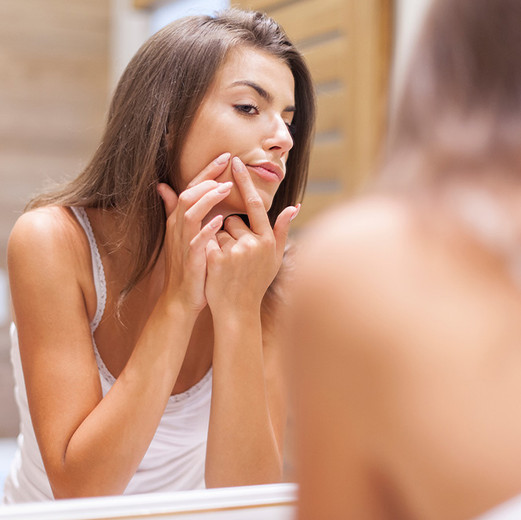Can Certain Foods Cause Acne?
Posted by La Roche-Posay, written by Mona Gohara, M.D. on Oct 30th 2020
Acne is the most common skin condition in the United States. And, dermatologists can all agree on what causes it: a hormonal spike causes an increase in oil production, which subsequently clogs pores and creates a perfect opportunity for P. acnes bacteria that lives on our skin natural to settle in and cause the inflammation. This inflammation is what we see on skin as pimples. In addition to hormones, oils and bacteria, genetics, and emotional stress are also key factors in ones tendency towards acne flares.
An acne trigger that has always been in question is that of diet: do the foods we choose ultimately show up on our skin? Does that one piece of chocolate really spiral your skin into a pimply frenzy? Data published in the late 60s debunked the idea that diet could play a role in acne development. But, new research within the last decade is debunking this finding.
Recent studies show that foods with a high Glycemic Index (GI) -- such as chips, cookies, cake, soda, white bread, pasta, rice, and other carbohydrates -- can cause acne to flare. It is the high spike of insulin levels in the blood that follows consumption of these foods that is thought to cause the breakout. One study was able to mark improvement in acne with a shift in diet from high to low GI. To help regulate blood sugar and insulin levels we recommend that patients:
1. Eat small, healthy meals often (every 2-3 hours).
2. Eat vegetables that are a wide range of deep, bright colors each day to help inflammation and oxidative damage.
3. Eat a balanced diet with very limited amounts of simple carbohydrates.
There is also new evidence suggesting a link between dairy and acne, and the hormonal content of skim milk has been targeted as potential acne trigger. Although more studies are needed to confirm a correlation, dermatologists may ask about your daily dairy consumption during your visit. It is not a good idea to try elimination diets as dairy has obvious health benefits, but if it is identified as a possible trigger, reducing daily intake may be suggested as part of the treatment plan.
In general, a good rule of thumb to remember is that the skin is your largest organ, and so it is important to treat it as such. Protect it and nourish it well with healthy foods. If its not good for your heart or brain, it wont be good for your skin, either.

